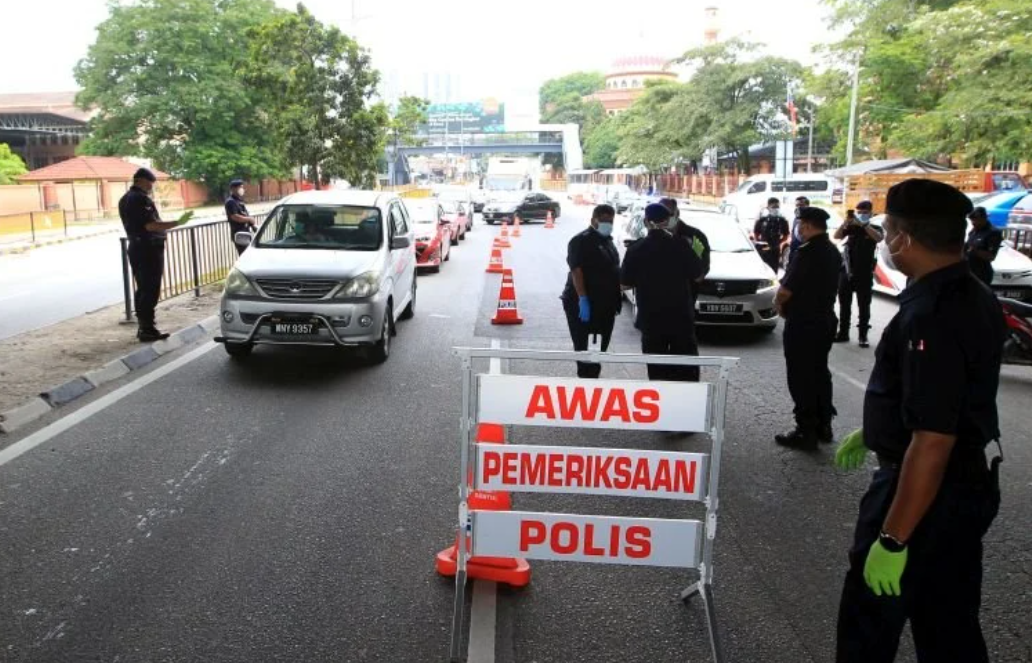
Malaysia officially sees 'third wave' of outbreak with some states imposing "conditional movement control orders"
- On 12 October, the Malaysian National Security Council decided to impose "conditional movement control orders" in Selangor, Kuala Lumpur and Putrajaya from 14 to 27 October. The Malaysian government has decided to extend the current movement control measures in place in Kuala Lumpur to most parts of the country in view of the continued spread of the New Guinea epidemic. Since mid-October, the Malaysian government has imposed conditional movement control orders in Sabah, Kuala Lumpur and Selangor, where the epidemic is deteriorating rapidly, restricting people from travelling across the region, closing schools and other places, and banning many social activities, but allowing most economic activities to continue as normal.
- The government has decided to implement a conditional action control order for Kedah, Malacca and other states during the period from November 9 to December 6.The Malaysian Defence Minister said the Conditional Movement Control Order would help the health authorities to implement targeted screening measures and reduce the movement of people in order to contain the spread of the disease. He also noted that the Conditional Movement Control Order, which was scheduled to end on November 9 in Kuala Lumpur and other places, will be extended until December 6, meaning that most of Malaysia will be under movement control.
- On 9 November, a four-week conditional movement control order was introduced in seven Malaysian states, including Kedah and Malacca, until 6 December. According to reports, the Malaysian government said that in view of the continued spread of the new crown epidemic, it has decided to extend the implementation of the movement control currently in force in the capital city of Kuala Lumpur and other places to most parts of the country. Notes on the latest announced control order (SOP).
: Cross-continental and cross-county travel will no longer be prohibited; except in areas where Enhanced Movement Control Orders (EMCOs) are being implemented.
: The restriction of two persons per vehicle will be removed and travel will now be allowed according to the number of persons the vehicle can accommodate.
: Persons travelling to Sabah must obtain a Covid-19 swab test three days prior to travel and only those who test negative will be allowed to enter the country. The CMCO for Sabah has also been extended until 20 December.
: From 7 December, there will be no more roadblocks and road closures, but social distance measures will be more strictly enforced. - Malaysia extends movement control measures against epidemic in Kuala Lumpur and other areas KUALA LUMPUR, Dec 5 -- Malaysian Defence Minister Ismail Sabri bin Yaakob, who is in charge of coordinating measures to control the epidemic, said at a press conference on Dec 5 that the existing operational control measures in the capital Kuala Lumpur and some areas will be extended until Dec 20 to control the spread of the new crown epidemic. The Minister said that according to the health department's health risk assessment, the number of cases in Kuala Lumpur, Selangor and Sabah is still increasing rapidly, so the government decided to extend the conditional movement control order, which was scheduled to expire on December 6 in Kuala Lumpur, most of Selangor and Sabah, until December 20. According to the Ministry of Health on the 5th, the country has seen 1123 new confirmed cases in the past 24 hours, with a cumulative total of 71,359 cases; 1,143 new cured cases, with a cumulative total of 60,204 cases; and 4 new deaths, with a cumulative total of 380 deaths. Most of the new confirmed cases are from Kuala Lumpur, Sabah and Selangor. According to the health department's recommendation, the Conditional Movement Control Order (CMCO) will no longer be in force in the rest of the country from December 7, except for Kuala Lumpur, Sabah, Selangor and a few other areas, and the epidemic checkpoints at the borders of the relevant states will also be removed on the 7th, allowing people to travel across the states. Since mid-October, the Malaysian government has been implementing conditional movement control orders in Sabah, Kuala Lumpur and Selangor, where the epidemic is deteriorating rapidly, with specific measures such as restricting cross-regional travel and closing schools, but allowing most economic activities to continue as normal. As the outbreak spread, the Conditional Movement Control Order was extended to most parts of the country in early November.
